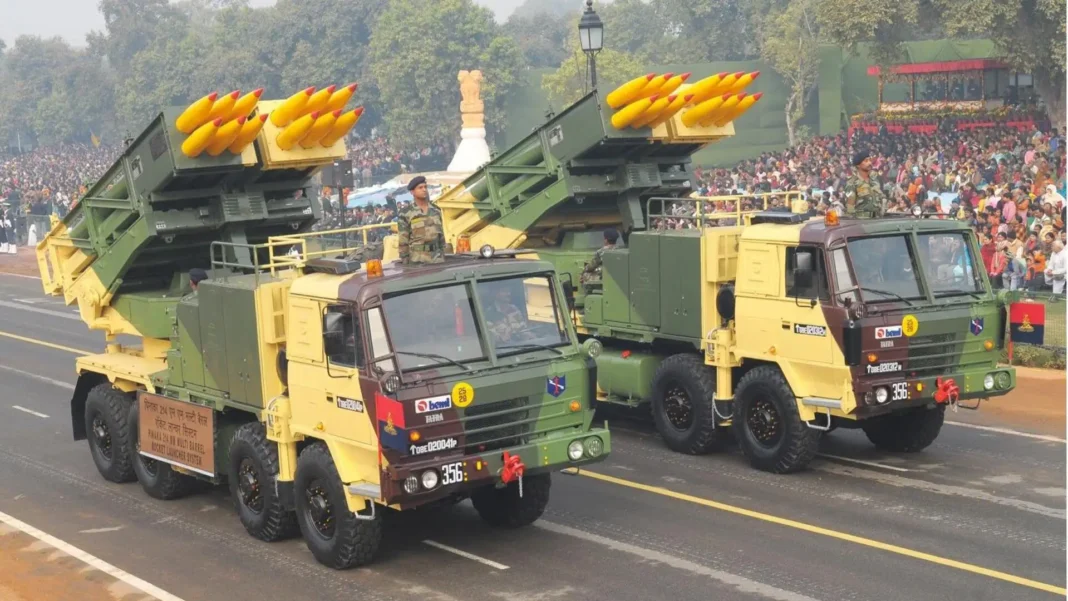In a landmark reform to bolster India’s defence self-reliance, the Ministry of Defence (MoD) has opened the manufacturing of missiles, artillery shells, ammunition, and ordnance to private sector companies, effectively ending the long-standing monopoly of state-owned enterprises. Announced on October 4, 2025, the policy amendment to the Revenue Procurement Manual (RPM) removes the requirement for private firms to obtain a no-objection certificate from Munitions India Limited (MIL), enabling direct participation in critical production lines. For defence industry professionals, investors, and policy analysts searching India private missile manufacturing, MoD ammunition reform 2025, or Atmanirbhar Bharat defence private sector, this initiative—aligned with the Atmanirbhar Bharat vision—targets uninterrupted supply during prolonged conflicts, allowing private players to produce items like 105mm/130mm/150mm artillery shells, Pinaka rockets, 1,000-pound bombs, mortar rounds, hand grenades, and small/medium-calibre ammunition. The MoD has also directed the Defence Research and Development Organisation (DRDO) to involve private firms in missile development programs, fostering innovation alongside public sector units like Bharat Dynamics Limited (BDL). This comes amid heightened demand for munitions, highlighted by Operation Sindoor, where long-range conventional missiles proved vital.
The policy shift is expected to attract investments from conglomerates like Reliance and Tata, accelerating India’s goal of 100 GW nuclear capacity and 42-squadron IAF by 2047.
Policy Reforms: Ending State Monopoly for Ammo and Missiles
The RPM amendment eliminates barriers for private entry into sensitive areas previously reserved for PSUs like MIL and BDL. Private firms can now set up production without prior clearances, subject to security audits.
Key changes:
- No NOC Requirement: From MIL for ammunition units.
- DRDO Collaboration: Private involvement in missile development and integration (e.g., BrahMos, Nirbhay, Pralay, Shaurya).
- Exclusions: Strategic missiles remain under DRDO.
This builds on the Defence Acquisition Procedure 2020’s ‘Buy (Indian-IDDM)’ category, promoting 74% indigenous content.
| Reform | Previous Rule | New Provision | Impact |
|---|---|---|---|
| Ammunition NOC | Mandatory from MIL | Eliminated | Faster Private Entry |
| Missile Development | DRDO Monopoly | Private Partnerships | Innovation Boost |
| Production Items | Limited to PSUs | Open to Private | Supply Chain Resilience |
Strategic Drivers: Lessons from Operation Sindoor and Global Needs
The reforms address gaps exposed during Operation Sindoor, where Pakistan’s Chinese missiles highlighted India’s need for scaled production. State firms can’t meet demands alone.
- Conflict Lessons: Stand-off weapons critical; private capacity ensures sustained supply.
- Global Demand: India eyes exporting 155mm shells at $300-400 each, undercutting Western prices.
- Private Pioneers: Reliance Infrastructure’s 155mm ammo deal with Rheinmetall; Bharat Forge’s ATAGS.
Defence Secretary Rajesh Kumar Singh: “Private involvement will enhance firepower without shortages.”
Private Sector Opportunities: Key Players and Projections
Conglomerates are poised to invest:
- Reliance Defence: Partnered with Rheinmetall for 200,000 shells annually.
- Bharat Forge: ATAGS howitzer and 155mm ammo production.
- Adani Defence: VL-SRSAM missile bids.
Projections: Private output could meet 40% of needs by 2030, adding Rs 50,000 crore to exports.
| Player | Focus | Capacity |
|---|---|---|
| Reliance | 155mm Shells | 200,000/Year |
| Bharat Forge | ATAGS Ammo | Prototype Ready |
| Adani | VL-SRSAM | Bidding Phase |
Conclusion: Private Firepower for Atmanirbhar Defence
India’s opening of missile and ammo manufacturing to private firms is a strategic masterstroke, ensuring self-reliance amid conflicts. As Reliance and Bharat Forge gear up, the sector transforms. For defence investors, it’s opportunity—will private innovation arm the future? The factories forge ahead. Financial express



